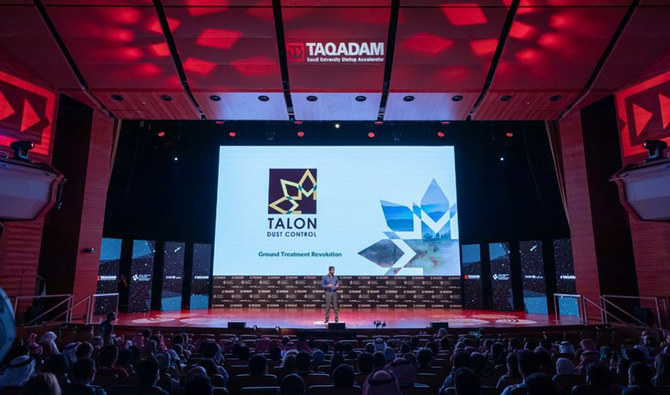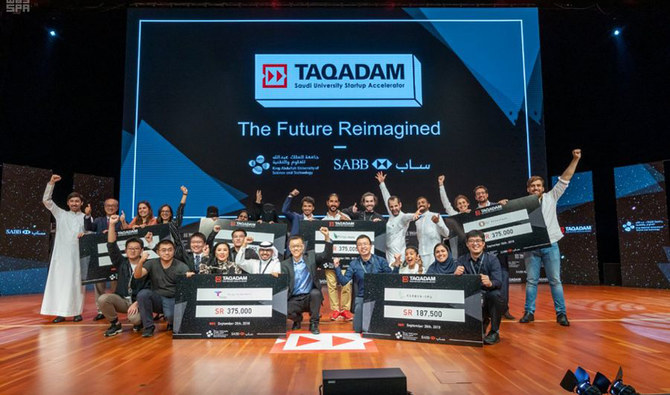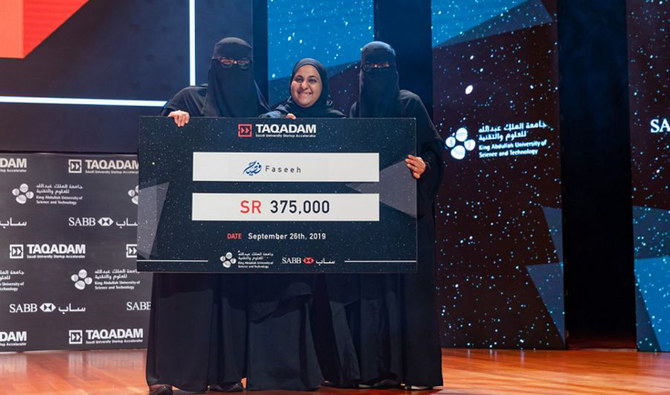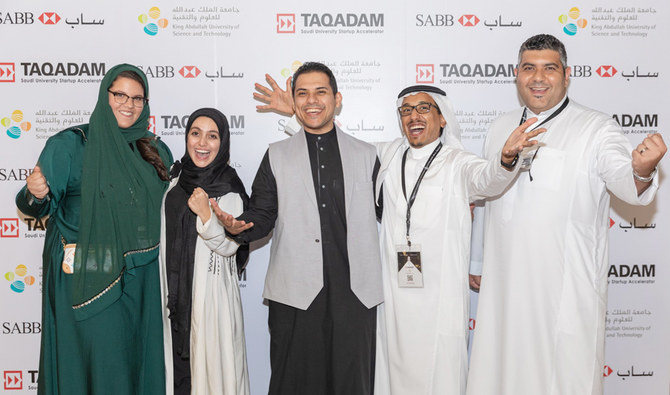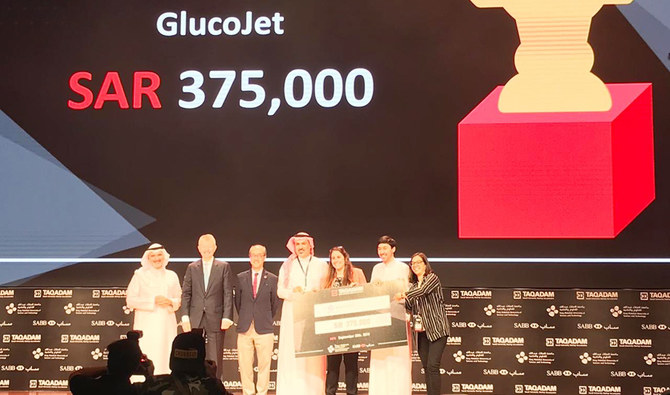JEDDAH: Over 1,100 participants, investors, and mentors gathered at the King Abdullah University for Science and Technology (KAUST) headquarters in Thuwal to watch the conclusion of the third edition of the TAQADAM accelerator program, one of KAUST’s flagship entrepreneurship events.
In line with Saudi Arabia’s objectives of supporting new ventures, the program focuses on preparing new entrepreneurs for the challenges ahead, offering over six months of business training and mentorship in various industries, including e-commerce, health care and technology.
The program gives Saudi students, staff and recent graduates the support to start a successful tech-based company through mentoring and training.
The theme of this year’s event was “The Future Reimagined.” This encouraged the program’s entrepreneurs to create technologies of the future that would benefit the Kingdom. Working with mentors from the Entrepreneurship Center at KAUST, they were able to design, develop and take their startup ideas to market.
Kevin Cullen, vice president of innovation and economic development at KAUST, said: “We are proud to support entrepreneurs and offer them the best environment and tools to create innovations that can change the world. Today, we have watched some incredible ideas and technologies that are solving issues across different industries in health care, agriculture, water, food, gaming, education and more. Congratulations winners, well done.”
Among the competing startups were 100 founders from 13 Saudi universities, representing a wide range of industries. During the event, each startup was given three minutes to pitch their ideas, followed by three minutes of Q&A and another three minutes of feedback from the judges.
Launched in 2016 in partnership with The Saudi British Bank (SABB), the TAQADAM accelerator program has successfully graduated 78 startups and awarded over SR9 million ($2.4 million) in funding.
Deputy managing director of transformation at SABB, Soren Nikolajsen, said that Saudi Arabia is enjoying huge changes and it is vital that the next generation of businesses is helped to seize these opportunities.
Decoder
TAQADAM
is a Saudi startup accelerator for ideas that are pushing the boundaries of science and technology. Over the course of six months, it helps aspiring entrepreneurs bring their ideas to market through mentorship and training in ideation, product design, marketing and fundraising. Accepted teams receive SR75,000 in grant funding and access to working space in the KAUST Entrepreneurship Center and prototyping lab.
“We’re determined to play our part in building a more diverse and sustainable economy, and one of the best ways we can do that is supporting the grassroots of the business ecosystem: Young entrepreneurs. Today’s winners show just what a great job TAQADAM has done developing new entrepreneurial talent,” Nikolajsen said.
The head of the Entrepreneurship Center at KAUST, Hattan Ahmed, said that its main goal is to create high quality, high impact new ventures from across Saudi Arabia by providing the professional training and mentorship needed to help take their ideas to the market.
“We are so proud of the startups graduating from our accelerator program and we look forward to supporting more,” he said. The following program winners each received SR375,000.
Firnas Aero: Drones on demand for airport infrastructure inspection. Faseeh: Learning app to teach Arabic language skills to help raise Qiyas scores.
Genos Tech: Turning microalgae into products such as Vitamin A and dietary supplements. Peregrine Genomics: Providing accurate premarital genetic diagnoses in half the time and cost.
Gluco Jet: Non-invasive and pain-free glucose testing for diabetes patients. Talon Dust Control: Low-cost, liquid spray-on solution for environmental dust control. Carbon CPU was the “People’s Choice Winner,” receiving SR187,500 after a live vote from the audience.


